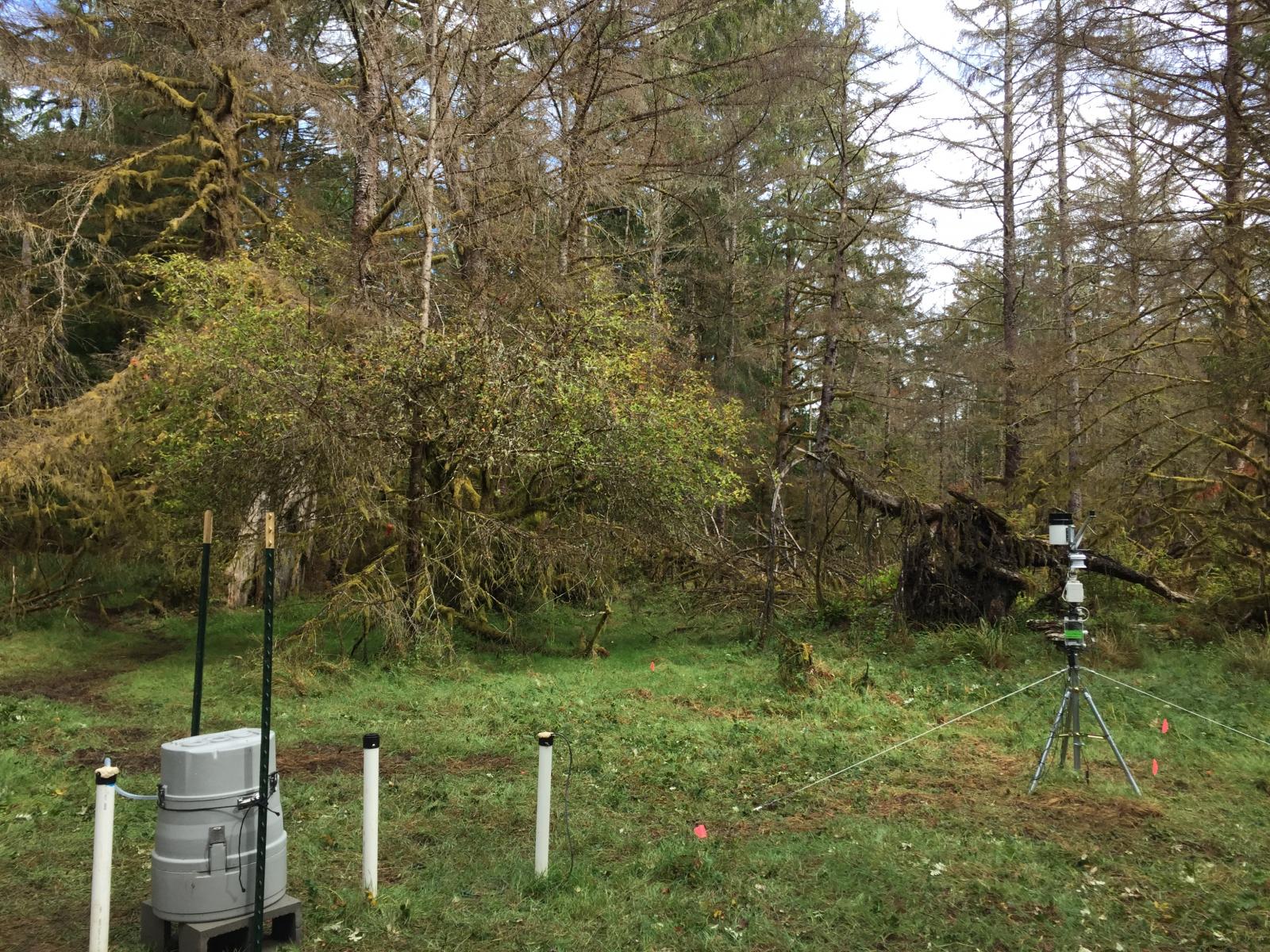Facility
Hydrobiogeochemistry Laboratory at PNNL-Sequim

The Hydrobiogeochemistry Laboratory at the Marine and Coastal Research Laboratory has instrumentation and field sensors used to evaluate hydrobiogeochemical parameters in surface water, groundwater, soils and vegetation.
(Photo courtesy of Nick Ward | Pacific Northwest National Laboratory)
The Hydrobiogeochemistry Laboratory at PNNL-Sequim has cutting edge laboratory and field deployable instrumentation for evaluating a wide range of hydrological and biogeochemical processes in terrestrial, freshwater, coastal, and marine ecosystems. The laboratory’s capabilities support research on the following topics:
- Greenhouse gas emissions from soils, surface waters and vegetation are measured in the field and during controlled laboratory experiments using a Picarro G2508 CO2, CH4, N2O, NH3, H2O Analyzer; a portable Licor 7810 CO2, CH4, H2O Analyzer with integrated Smart Chamber and soil moisture/temperature probe; and two portable Licor 850 CO2, H2O Analyzers
- The stable isotopic composition of methane and carbon dioxide in groundwater, porewater, surface water and headspace gas produced under experimental conditions is studied using a Los Gatos Methane Carbon Isotope Analyzer and a Los Gatos Carbon Dioxide Isotope Analyzer.
- The stable isotopic composition of water is examined using a Los Gatos Water Isotope Analyzer to track sources of meteoric versus coastal waters
- A Rad-7 radon analyzer is used to determine groundwater inputs to surface water environments and the contribution of groundwater to greenhouse gas emissions
- A Dionex dual channel Ion Chromatograph with two conductivity detectors and a multichannel variable wavelength detector for determination of anions and cations in both fresh and seawater samples
- Teledyne Isco Autosamplers are used for automated water sample collection from rivers, groundwater wells, and coastal ecosystems
- Meter Pario soil particle size analyzers and Meter Hyprop 2 precision tensiometers are used for analyzing soil and sediment properties
- A variety of field sensors are used for long-term monitoring of hydrobiogeochemical parameters in surface water, groundwater, soils and vegetation. Target parameters include CO2, O2, pH, redox potential, fluorescent dissolved organic matter, water level, soil moisture and temperature, meteorology, tree sap flow, and plant photosynthesis.